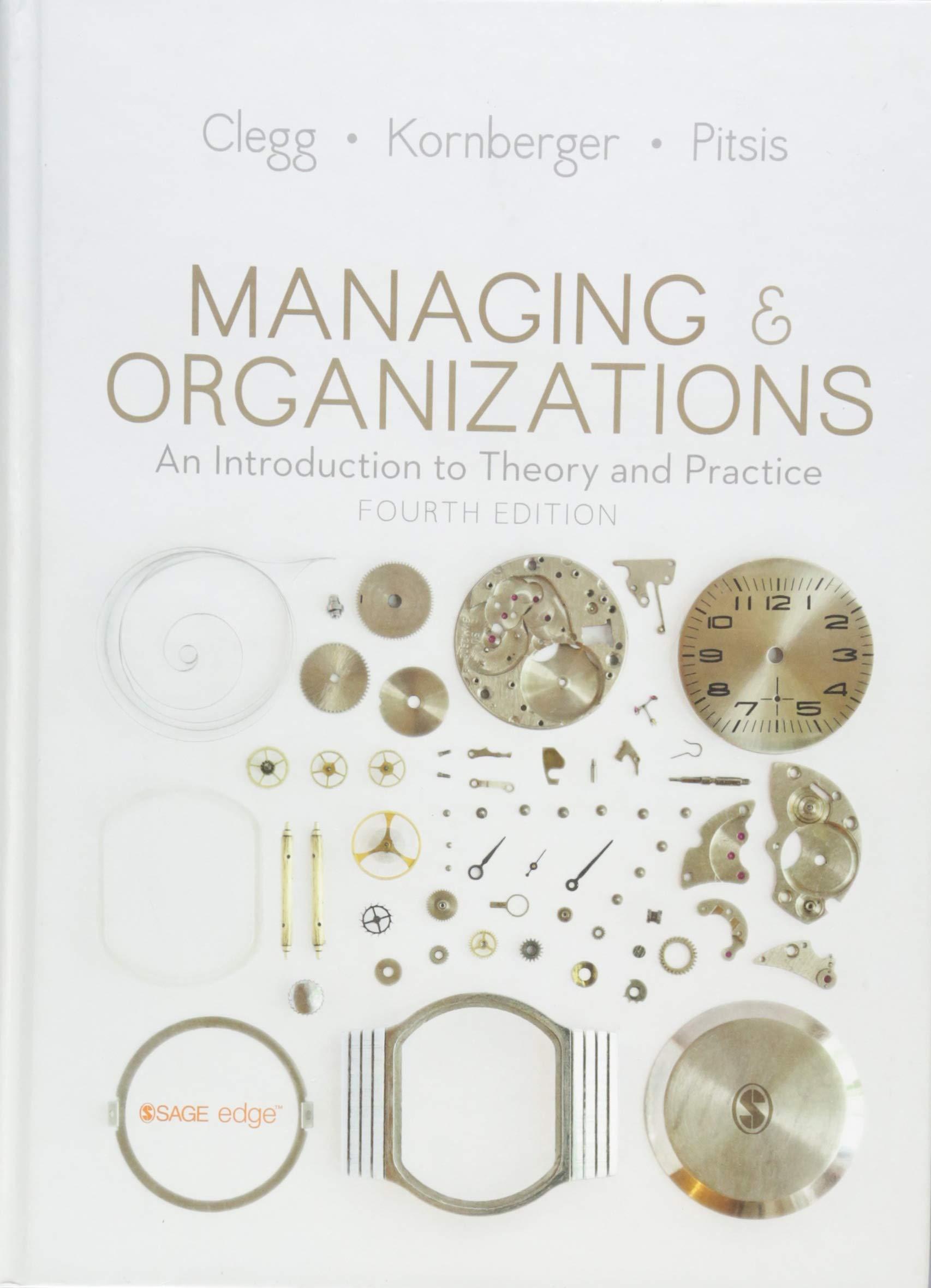In a by now famous article in the Administrative Science Quarterly by Karl Weick, you will read
Question:
In a by now famous article in the Administrative Science Quarterly by Karl Weick, you will read about a bush fire that killed 13 firefighters.
The heart of the story as Weick retells it is this:
On 5 August 1949, at about 4 p.m., 15 smoke jumpers - trained firefighters but new to one another as a group - parachuted into Mann Gulch. The crew's leaders originally believed that the blaze was a basic 'ten o'clock fire', meaning that the crew would have it under control by 10 the next morning. Instead, the fire exploded and forced the men into a race for their lives. The Mann Gulch fire may seem to be a distant tragedy, but Maclean's exploration of the event touches on many questions of deep significance for readers today. For those of us concerned about leadership in organizations, the episode illuminates problems facing corporate leaders. Increasingly, corporate work unfolds in small, temporary outfits where the stakes are high, turnover is chronic, foul-ups can spread, and the unexpected is common. As we will see from what follows, minimal organizations, exemplified by the crew at Mann Gulch and found at a growing number of businesses, are susceptible to sudden and dangerous losses of meaning.
The crew was soon moving through slippery grasses two and a half feet high but was quickly losing ground to the flames- eventually towering at a height of 30 feet - rushing toward them at a rate that probably reached a speed of 660 feet per minute. Sensing that the crew was in serious danger, Dodge yelled at them to drop their tools. Two minutes later, to everyone's astonishment, he lit a fire in front of the men and motioned to them to lie down in the area it had burned. No one did. Instead, they ran for the ridge and what they hoped would be safety.
Two firefighters, Robert Sallee and Walter Rumsey, made it through a crevice in the ridge unburned. Dodge survived by lying down in the ashes of his escape fire. The other 13 perished. The fire caught up with them at 5:56 - the time at which the hands on Harrison's watch melted in place....
Questions
Analyse the Mann Gulch incident - what should the firefighters have done to save lives on 9/11? What can one learn from Weick's analysis about the organizational response to the 9/11 incident - should the firefighters have dropped their tools and refrained from entering the stricken building? Answer the question from the perspective of the Fire Service executive seeking to make sense of the disaster to inform future responses to similar disasters: in such an event what should firefighters do? Prepare a draft set of recommendations for responding to a future event similar to 9/11.
Step by Step Answer:

Managing And Organizations An Introduction To Theory And Practice
ISBN: 9781446298367
4th Edition
Authors: Stewart R Clegg, Martin Kornberger, Tyrone S. Pitsis





